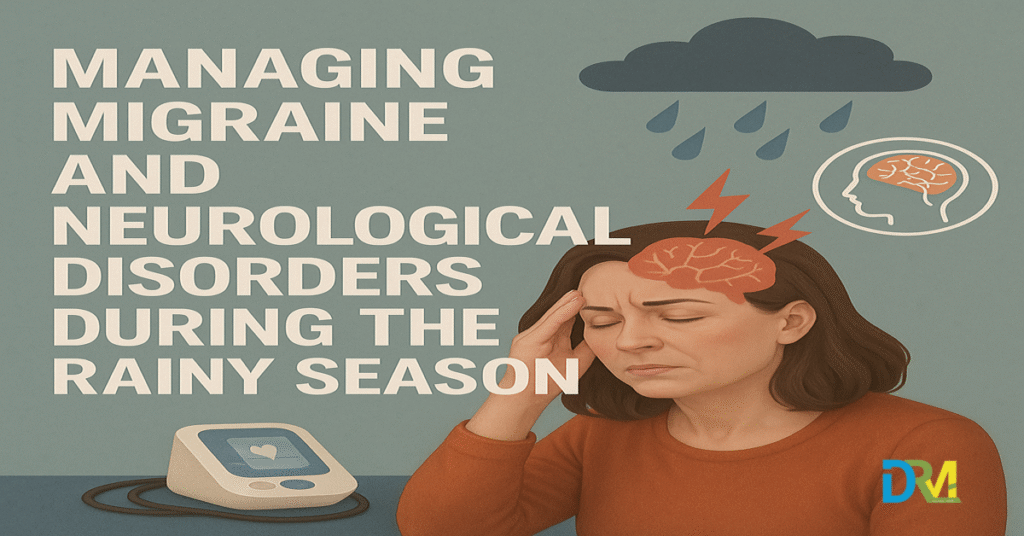Why Rainy Season Triggers Neurological Flare-Ups
The rainy season brings much-needed relief from the heat but for many, it also ushers in a wave of headaches, mood swings, and worsening neurological symptoms. Changes in barometric pressure, humidity, and air quality can significantly impact those dealing with conditions like migraines, epilepsy, and neuropathy.
Migraine in the Rainy Season: Why It Gets Worse
Barometric pressure drops a common weather shift during monsoon—can trigger migraines due to the impact on intracranial pressure.
Common monsoon headache symptoms:
Throbbing pain on one side
Sensitivity to light and sound
Nausea or vomiting
Aura or visual disturbances
Monsoon Headache Tip: Keep a migraine diary to track patterns and triggers during rainy days.
Neurological Disorders That Flare Up in Rainy Weather
Beyond migraines, several other neurological issues are influenced by monsoon conditions:
1. Epilepsy
Humidity and stress can increase seizure frequency. Electrical storms can also interfere with devices like vagus nerve stimulators (VNS).
Tip: Maintain medication schedules strictly and consult your neurologist for rainy-season precautions.
2. Neuropathy
Damp, cold weather can worsen pain or tingling in patients with diabetic or peripheral neuropathy.
Tip: Keep warm and avoid getting feet wet to prevent nerve irritation.
3. Multiple Sclerosis (MS)
Changes in temperature and barometric pressure may affect nerve conductivity, increasing fatigue and flare-ups.
Diet and Lifestyle Tips
Stay hydrated: Even if it’s cooler, dehydration can still trigger migraines.
Eat on time: Skipping meals is a major trigger for monsoon headaches.
Limit trigger foods: Aged cheese, chocolate, and MSG-laden foods may worsen symptoms.
Practice gentle exercise: Stretching and yoga help manage stress and circulation.
Diet and Lifestyle Tips
Stay hydrated: Even if it’s cooler, dehydration can still trigger migraines.
Eat on time: Skipping meals is a major trigger for monsoon headaches.
Limit trigger foods: Aged cheese, chocolate, and MSG-laden foods may worsen symptoms.
Practice gentle exercise: Stretching and yoga help manage stress and circulation.
When to Seek Medical Help
Seek immediate care if you experience:
Persistent or sudden severe headaches
Muscle weakness or slurred speech
Visual loss or confusion
New seizure activity
Final Thoughts
Rain doesn’t have to mean retreat for your health. With the right information and support, you can manage migraine and neurological disorders during the rainy season confidently. Track your symptoms, stay consistent with treatment, and always consult your neurologist if anything changes.


